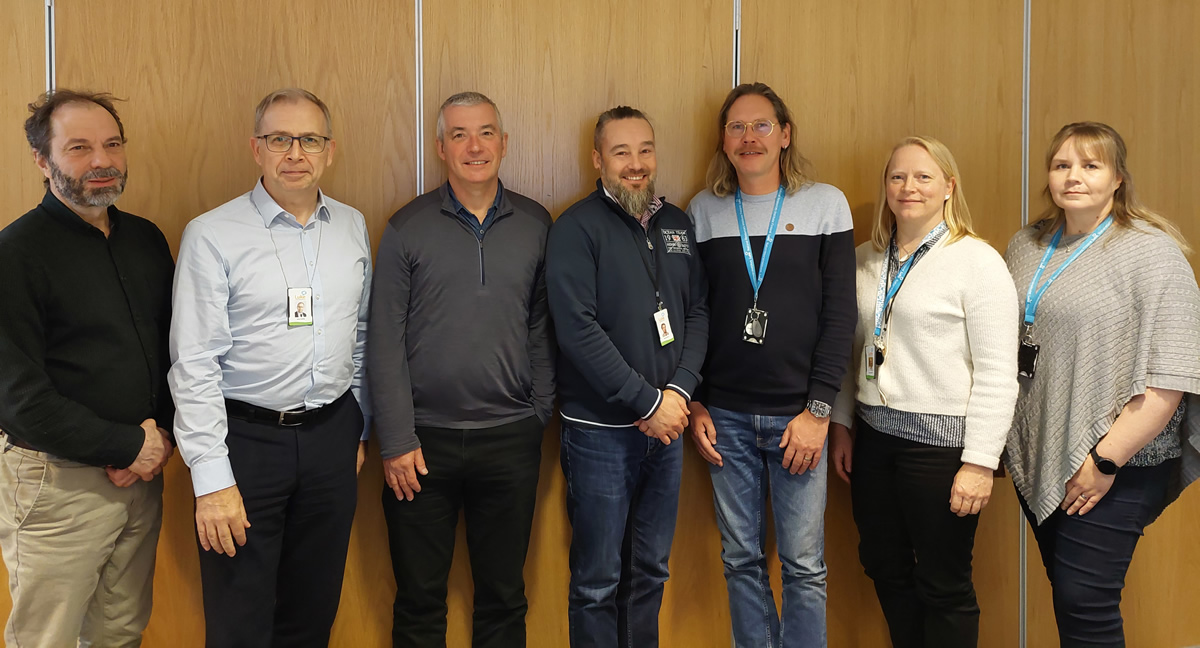Biobased products and the future of the bioeconomy connect Luke and Scion
For immediate release
16 January 2023
The Natural Resources Institute Finland (Luke) and Scion - Crown Research Institute from New Zealand are collaborating to increase the use of climate friendly biobased materials, energy and other services.
Scion’s Portfolio Leader for Integrated Bioenergy, Dr Paul Bennett, visited Luke in October 2022, to discuss the future of the bioeconomy and bioenergy, to learn more about Luke’s Biogas pilot, Biopaja, and to share Scion’s bioenergy developments.
He says Scion and Luke have been coordinating a series of virtual meetings on a range of topics with a view to develop full research collaborations. Dr Bennett was excited to have the first physical meeting in three years with Luke.
“It was really beneficial to explore these opportunities with Luke and engage in person with the key scientists and staff there.”
Dr Bennett believes that biomass has an important role as a pathway to slow down global warming. He says biomass use for energy, needs to be balanced with provision of food and biomass for bio-based products. The traditional use of biomass for energy is predicted to decline, and the amount of modern bioenergy use is expected to triple by 2050.
“Modern liquid, solid and gaseous bioenergy will have a growing role as the use of oil and coal decreases. Agriculture, forestry and industry residues and wastes have a big part to play in the future,” he says.
According to Dr Bennett, bioenergy contributes to climate change mitigation when biomass is grown sustainably or is based on waste or residue, is converted to energy products efficiently, and is used to displace fossil fuels. Scion’s vision is to position bioenergy as a transition away from fossil fuels. Scion, for example, is working on drop-in solid biofuels which are wood-based biofuels that perform similarly to coal.
Luke offers bespoke solutions and services based on holistic understanding of biomass value chains. Luke’s expertise covers biomass production, harvesting and transportation, biorefineries, biomass valorisation and nutrient recycling.
Biopaja – solutions for circular bioeconomy
Biopaja is an experimental facility in Jokioinen, Finland. In Biopaja, various solutions can be tested to study and demonstrate the nutrient and organic matter recycling of different biomasses. Luke works with and serves companies in developing and adopting recycled fertilisers, renewable energy and other value-added products.
Biopaja’s research facilities and expertise enable comprehensive research and development of biogas production. In addition to biogas production, the facilities can be used, for example, in research and development of organic acid and biohydrogen production.
Luke also has ongoing research on birch bark. The idea is to use the valuable parts of birch bark, like suberin and botulin, before energy use. Botulin has antiseptic, antiviral, and antioxidant properties, and has been found to prevent malaria and HIV. Currently bark is mainly combusted – new and efficient measures are needed for debarking.
This is another opportunity for complementary research with Scion’s Bark Biorefinery research, with Scion hosting Luke staff travelling on a Marie Curie Exchange award.
Luke’s Director for Customer Solutions and International Relationships John Kettle says “our collaboration is made even more timely by New Zealand, with the European Commission progressing Horizon Europe negotiations on New Zealand's Association to Pillar Two of Horizon Europe.”

